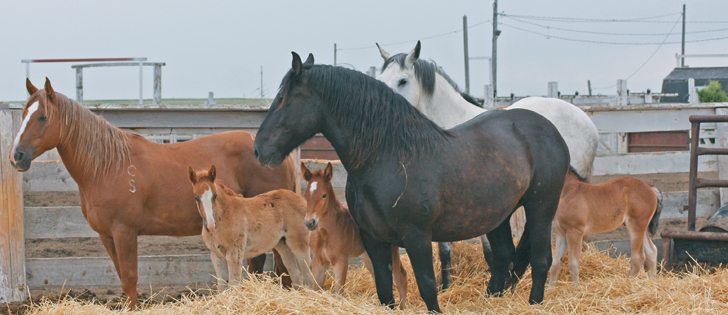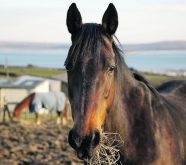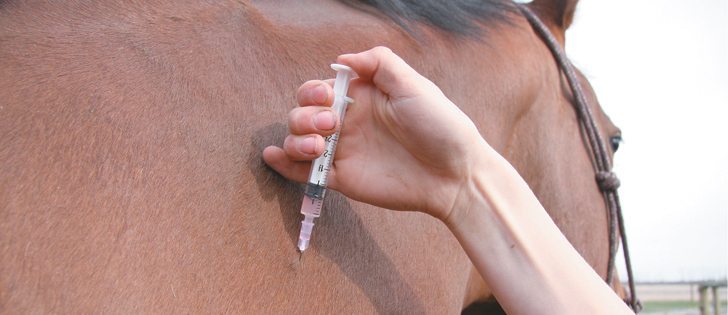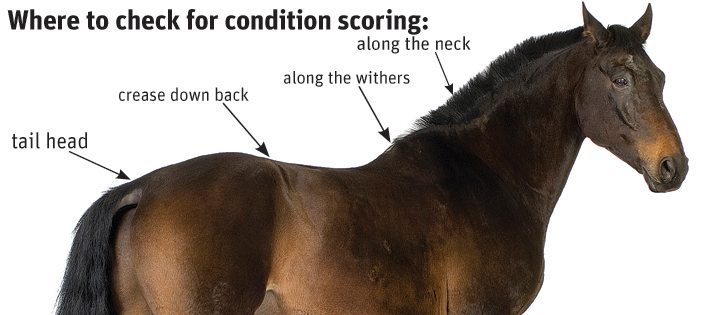Parasite resistance to commonly used treatments is increasing so egg counts are advised to ensure the right treatment is used
COCHRANE, Alta. — Deworming horses is a common springtime practice, but producers must also consider the growing problem of parasite resistance to commonly used treatments, says an Alberta veterinarian.
“We know resistance is building, and it is a herd based problem,” Brettly Battistone with Burwash Equine Services of Calgary told a horse workshop in Cochrane.
“In the past, we thought of it as a region based problem.”
No new products are expected soon, which means ivermectin, moxidectin, pyrantel and fenbendazole are the only options.
Read Also
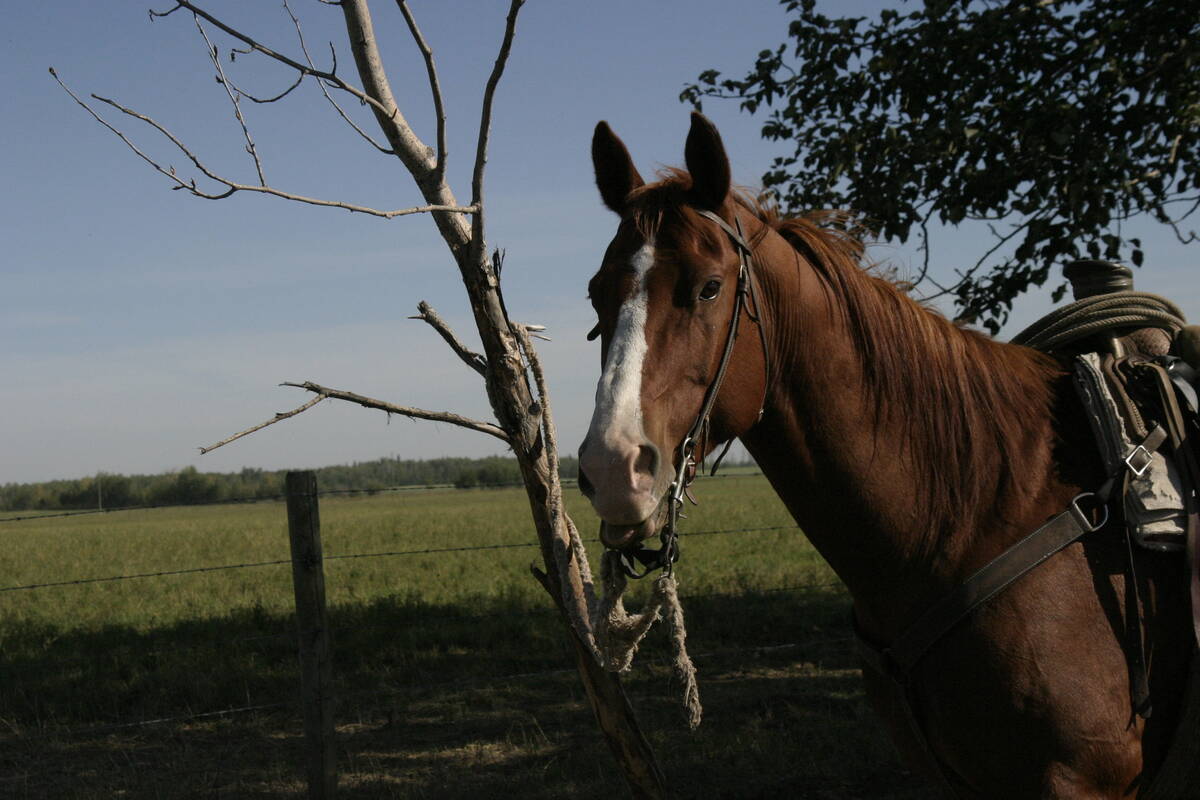
Horses challenged when asked to be weekend warriors
Horses are creatures of consistency. Their bodies and nervous systems are designed for steady, rhythmic movement, low-intensity grazing and regular social interaction.
“It may seem like we’ve got a lot of products but really, we have a lot of brand names and not a lot of compounds,” she said.
Horses pick up parasites by eating worm eggs or larvae passed in man-ure. Keeping horses in small, crowded pastures or feeding them on the ground increases the parasite risk.
Veterinarians recommend checking horses’ feces and getting an egg count done at a laboratory. The worms can be correctly identified so that the right treatment is used.
A fecal egg count assesses how many eggs are present in a gram of manure.
Fresh feces should be collected and placed in a sealed, plastic bag. It can be refrigerated over night and then delivered to a veterinary clinic for analysis and recommendations.
The tests can also determine if a horse is a low or high shedder of parasite eggs and if drug resistance is present.
Worms do not shed eggs during winter, so nothing will show up if a count is collected then. Check in spring and fall when the worms are reproducing.
Studies have shown that horses with high worm counts can be targeted for more treatment, while low shedders require less intervention.
Some parasites show less resistance than others because of their life cycles and how quickly their genetic makeup can evolve.
“The shorter the life cycle the quicker resistance can develop,” Battistone said.
For example, small strongyles have short life cycles and show resistance sooner because the genetic makeup changes quickly.
Large strongyles have a long life cycle, which means they are less of an issue if horses are dewormed once or twice in summer.
There are many types of worms, but the most important are:
- Large strongyles, also called bloodworms or redworms, can cause unthriftiness, weight loss, poor growth in young horses, anemia and colic.
- Small strongyles burrow into the lining of the intestine and remain dormant for several months before completing their life cycle. During this time, the larvae are resistant to most dewormers because they are enclosed in a cyst. Colic and diarrhea are common in heavily infected horses. They cause weight loss, slowed growth in young horses, poor coat condition and lack of energy.
- Roundworms (ascarids) cause problems for foals, which means they should be dewormed every two months before they reach a year of age.
Worms in a foal that has never been dewormed could migrate to the lungs, get coughed up and digested again. Roundworm infection in young horses can cause coughing, poor body condition and growth, rough coat, pot belly and colic.
In large numbers they can cause blockage of the intestine and may have to be removed surgically.
- Tapeworms are not commonly seen in Alberta. They have not shown much resistance, but more research may be needed. These have long life cycles so it takes them more time to develop resistance.
The tapeworm life cycle starts with a tiny pasture mite as an intermediate host. Horses are at a risk when they eat this mite in the grass, hay or grain.
- Bots can attach anywhere in the digestive system and have a long life cycle. Flies lay sticky eggs on grass and horses pick them up on their legs. They eat the eggs when they groom themselves. Colic and other intestinal upsets can occur. They do not show up in fecal egg count exams.
- Pinworms are common in Alberta and have a long life cycle. The mother worm comes out of the anus, lays eggs around the area and then goes back inside. The eggs are irritating, which means the area should be washed with a mild soap and rinsed if horses are rubbing themselves.


